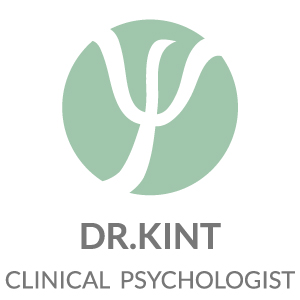Psychological Therapies
When deciding on an appropriate psychologist, it can be useful to understand the different types of therapies your psychologist may use. Below is a breakdown of some of the different psychological therapies I use in my practice. Although each one can be effective on its own, I find that some approaches are better suited to certain conditions or I tend to select elements from several different treatment modalities and combine them when working with clients.
Cognitive-Behaviour Therapy (CBT)
CBT is one of the most established and researched psychological therapies and has strong empirical support. As the name suggests, CBT involves both cognitive therapy and behaviour therapy. Cognitive therapy focuses on assisting clients to identify and change unhelpful thinking patterns, while behaviour therapy looks at modifying behavioural patterns which reinforce distorted thinking. When combined skillfully, these two approaches provide a very powerful method to help overcome a wide range of emotional and behavioural problems in children, adolescents and adults.
Interpersonal Therapy (IPT)
IPT is an interpersonally focused psychotherapy, where interpersonal relationships are the primary focus of therapeutic attention as the means to bring about change. The aim of IPT is to assist clients to improve their interpersonal relationships or change their expectations about them. In addition, the treatment also aims to assist patients to improve their social support network so that they can better manage their current interpersonal distress.
Schema Therapy
Schema therapy is an integrative treatment approach that is especially well suited to clients with entrenched maladaptive patterns of thinking (i.e. schemas), which have been difficult to treat. The schemas that are targeted in therapy are enduring and self-defeating patterns that typically began during childhood and adolescence. These patterns consist of negative/dysfunctional thoughts and feelings, that continue to pose obstacles for accomplishing one’s goals and getting one’s needs met. Using schema-focused therapy in treatment, my goal is to help client’s break these negative patterns of thinking, feeling and behaving, which are often very tenacious, and replace them with healthy alternatives.
Acceptance and Commitment Therapy (ACT)
Acceptance and Commitment Therapy (ACT) is one of the more recent mindfulness-based behaviour therapies shown to be effective with a diverse range of clinical conditions. ACT gets its name from one of its core messages, that is, accept what is out of your personal control and commit to action to change what you can. The aim of ACT is to maximise client’s potential for a rich, full and meaningful life. ACT does this by teaching you psychological skills to deal with your painful thoughts and feelings in such a way that they have much less impact and influence over you. It is also useful to assist you to clarify what is truly important and meaningful to you, so that you are able to use this knowledge to guide, inspire and motivate you to change your life for the better.
Motivational Interviewing (MI)
Motivational Interviewing is a treatment approach designed to facilitate and engage intrinsic motivation within the client in order to change an addictive and/or unhealthy behaviour. MI recognises and accepts the fact that clients who need to make changes in their lives approach therapy at different levels of readiness to change. Therefore, a major therapeutic focus is to assist the client to explore and resolve any ambivalence they may have in respect to changing their behaviour, in a non-judgmental and non-confrontational way.

